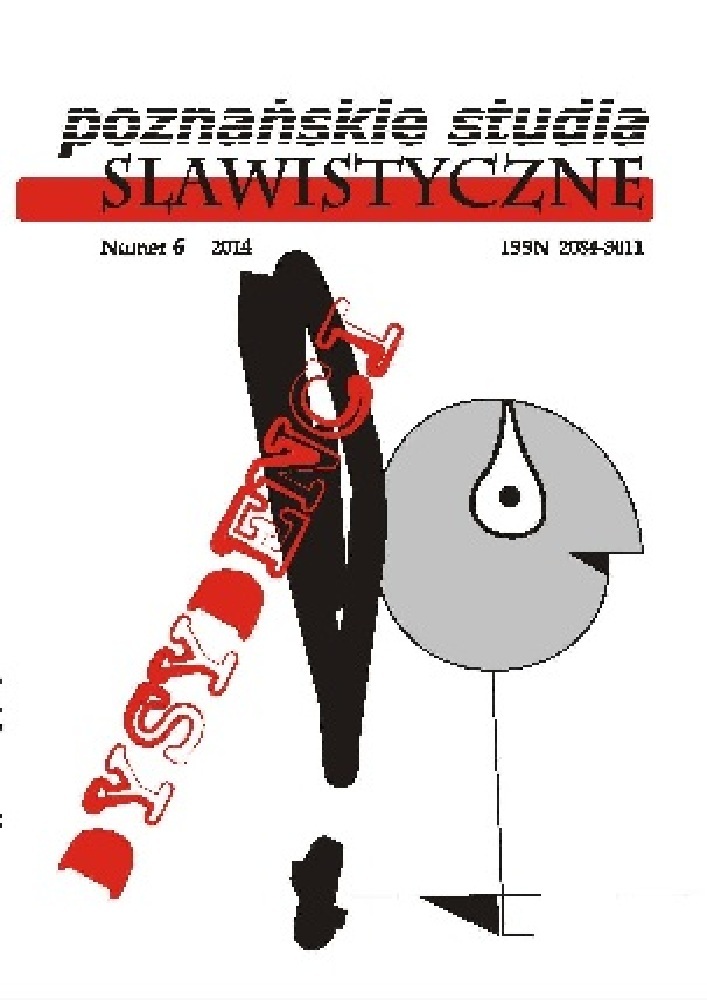Abstrakt
In this paper the authoress refers to examples from the period between the 60s and the beginning of the 90s of the 20th century in Croatia which best illustrate not only the playwriting but also the lethalness of the act through mostly political drama typical of the period in question. At the time, the theatre was more often than not „the only space in which people were allowed to think and talk politically” (B. Senker). The paper discusses the following dramas: Perković’s Closed Afternoon (1966), Šoljan’s Diocletian’s Palace (1969), Kušan’s The End of Freedom (1971), Marović’s Antigona, the Queen of Thebes, and Themistocles (both from the early 1980s), and Brešan’s Julius Caesar (1994; publ. 1997). Dramatic literature and the theatre of these decades did not only reflect the happenings in Croatia within the former Yugoslav state; many of the above and other authors paid for their courage to write these texts with being passed over in silence, and with intellectual, political and existential harassment.
Bibliografia
Biti V., 1997, Pojmovnik suvremene književne teorije, Zagreb.
Brešan I., 1997, Julije Cezar, u: idem, Spletke, Zagreb, str. 163–256.
Brešan I., 2003, Predstava Hamleta u selu Mrduša Donja, Zagreb.
Fabrio N., 1997, Predgovor. Tri drame Vlatka Perkovića, u: V. Perković, Tri drame (i skica za jedan operni libreto), Split, str. 9–13.
Frangeš I. (ur.), 1997, Književno djelo Tonča Petrasova Marovića, Split.
Gavran M., 2001, Kreontova Antigona, u: idem, Odabrane drame, Zagreb, str. 5–28.
Kušan I., 1995, Svrha od slobode. Drame, Zagreb.
Marović T.P., 1992, Antigona, kraljica u Tebi, u: idem, Odabrana djela II (Proza, drame), Split, str. 121–190.
Marović T.P., 1984, Historia, ae, f., u: idem, Osamnica, Zagreb.
Marović T.P., 1984, Temistoklo, dramska historija, Split.
Mišković G., 2012, Religijski i biblijski elementi u hrvatskoj drami XX. stoljeća, doktorska disertacija.
Mišković G., Peričić H., 2010, Hrvatska drama s religijskim elementima u razdoblju komunizma. Književnost i društvo u drugoj polovici 20. stoljeća, u: B. Hećimović, Krležini dani u Osijeku 2009, Zagreb–Osijek, str. 162–177.
Mrduljaš I., 1995, Riječ koja se čuje (O dramatici Ivana Kušana), u: I. Kušan, Svrha od slobode, Zagreb, str. 397–414.
Pavličić P., 1997, Marovićev dramski stih, u: Književno djelo Tonča Petrasova Marovića. Zbornik radova sa znanstvenog skupa održanog 2. listopada 1996, ur. V. Glunčić-Bužančić, Split, str. 82–91.
Peričić H., 2008, Metaliterarnost i multikulturalnost hrvatske drame druge polovice XX. stoljeća, u: Zbornik radova X. Komparativna povijest hrvatske književnosti. Smjerovi i metodologije komparativnog proučavanja hrvatske književnosti, ur. C. Pavlović, V. Glunčić-Bužančić, Split, str. 447–460.
Peričić H., 2008, Tekst, izvedba, odjek (Trinaest studija iz hrvatske i inozemne dramske književnosti), Zagreb.
Peričić H., 2011, Deset drskih studija (o književnim pitanjima, pojavnostima i sudbinama), Split.
Perković V., 1966, Zatvoreno poslijepodne, Split (drugo izdanje:
Perković V., 1997, Tri drame [i skica za jedan operni libreto], Split).
Senker B., 2001, Hrestomatija novije hrvatske drame. II dio 1945–1995, Zagreb.
Stamać A., 2005, Zapravo, Šoljan, Zagreb.
Šnajder S., 1982, Hrvatski Faust, Zagreb.
Šoljan A., 1970, Dioklecijanova palača, u: idem, Devet drama, Zagreb, str. 263–319.
Licencja
Copyright
© 2014 Uniwersytet im. Adama Mickiewicza w Poznaniu
OPEN ACCESS
